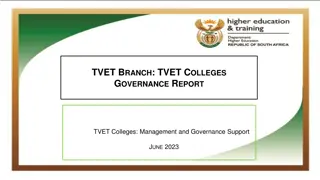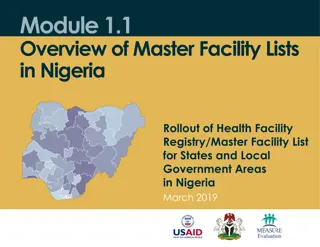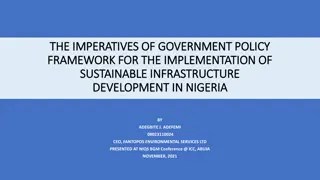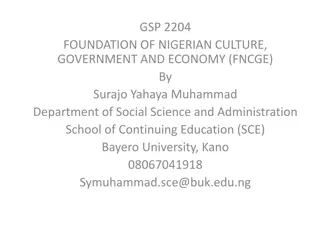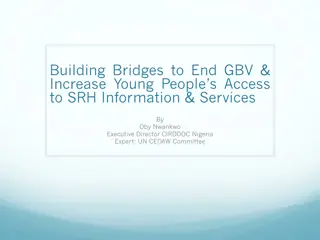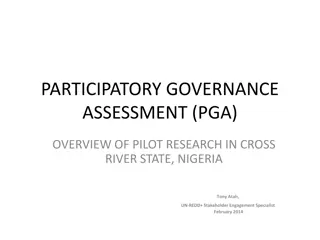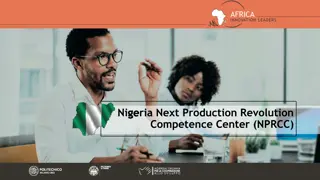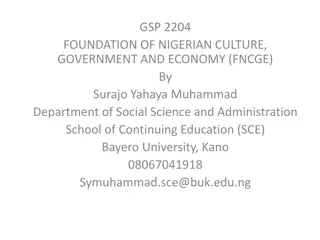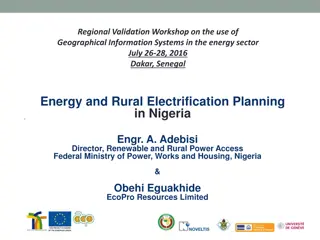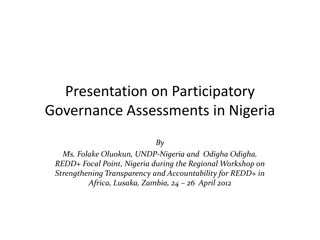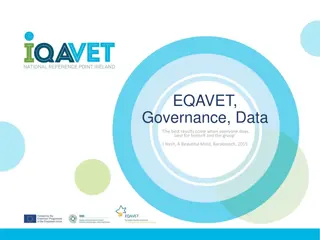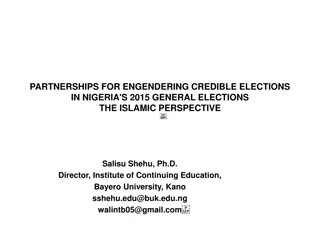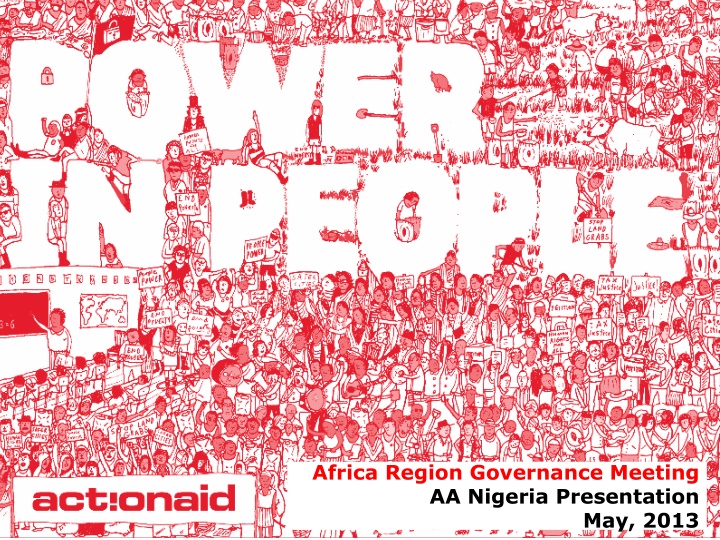
Enhancing Local Governance in Nigeria
Nigeria faces governance challenges despite 14 years of democracy. Limited devolution of powers leads to disconnected local representatives. ActionAid Nigeria intervenes through Local Rights Projects to address governance issues, corruption, and lack of citizen participation. Programs focus on promoting accountable governance, advocating for pro-poor policies, and increasing community engagement in decision-making processes.
Download Presentation

Please find below an Image/Link to download the presentation.
The content on the website is provided AS IS for your information and personal use only. It may not be sold, licensed, or shared on other websites without obtaining consent from the author. If you encounter any issues during the download, it is possible that the publisher has removed the file from their server.
You are allowed to download the files provided on this website for personal or commercial use, subject to the condition that they are used lawfully. All files are the property of their respective owners.
The content on the website is provided AS IS for your information and personal use only. It may not be sold, licensed, or shared on other websites without obtaining consent from the author.
E N D
Presentation Transcript
Africa Region Governance Meeting AA Nigeria Presentation May, 2013
General Governance Context in Nigeria Introduction Introduction Nigeria is experiencing 14 years of democracy, yet the tenets of democracy have not been fully entrenched. Nigeria operates three tiers of government (Federal, State and Local) but the devolution of powers has been very limited. Thus the country operates more like a unitary state. Community people are faced with grave issues of governance where local representatives are disconnected from the citizens and carry on with governance as private business empires. ActionAid Nigeria s main interventions at the local level are done in the Local Rights Projects (LRP) communities, working with local partner organisations and the community members.
Introduction Introduction Weak knowledge of human rights. Citizens inability to hold duty bearers (especially governments) to account. Limited knowledge of basic governance structures, roles and responsibilities. High level of corruption and failure of governments to respond to community needs to basic social services. Limited participation of women in decision making.
CSP 1: Work with govt institutions to promote laws, policies and practices that address the rights of poor and excluded communities with democratic and accountable governance CSP2: Work with organisations to advocate accountable and transparent governance with pro-poor policies/progs.
Introduction Current programmes/activities/interventions Introduction Trained LRP staff and community facilitators on basic governance, human rights and citizens participation in governance. Engaged, analysed and disseminated information on the 2013 Federal Budget. Advocacy and partnering with NASS to ensure budget is people-centred. Supporting ELBAG training for NDS. Introduced Know your budget live radio programme. Engaged the Constitution review process.
Introduction Current programmes (contd.) Introduction Promotion, advocacy and reporting on Nigeria adherence to international best practices tracking/ reporting on availability of information on budget office website Continue the publication of Governance Matters newsletter and NASS Watch e-bulletin. Desk review of legal frameworks to advance budget processes to International standards (i.e. Budget Law). Analysis of special reports on performance of government on 2 MDG Initiatives UBE & NHIS
Expected Outcomes Introduction Introduction Budget and other governance information available for media and Civil society. Analysis reflected in NASS response to annual proposal Wide and broader audience for budget advocacy More budget information available on websites Mid year reports on project performance available to NASS, media and influences public resource management Increased consciousness of citizens about their rights and mobilisation for action. Increased number of citizens holding duty bearers to account.
Key challenges/Support required Introduction Introduction Financing. Personnel. Support required: Funding opportunities Technical support


